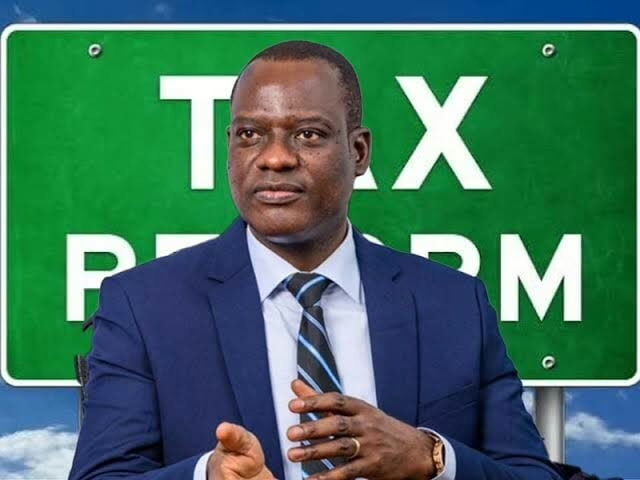Taiwo Oyedele, Chairman of the Presidential Committee on Fiscal Policy and Tax Reforms, clarified that the suggested fuel surcharge is not intended to impose extra financial strain on Nigerians. Instead, its purpose is to generate targeted funds to rehabilitate the country’s deteriorating road infrastructure.
He highlighted the poor state of Nigeria’s roads as a significant contributor to rising inflation, particularly affecting food prices.
Speaking on Channels Television’s ‘Morning Brief’ on Tuesday, Oyedele addressed public worries that the newly enacted tax reforms might exacerbate inflation and negatively impact vulnerable populations.
“I share the concerns about inflationary pressures,” he acknowledged. “However, it’s important to recognize that robust road infrastructure is crucial worldwide. Nigeria has approximately 200,000 kilometers of roads, yet only about 60,000 kilometers are in good condition. This severely increases the cost and risk of transporting goods and people across the country.”
He emphasized the direct correlation between Nigeria’s inadequate road network and inflation, noting the stark contrast in food price inflation between rural and urban areas.
“When comparing rural and urban food inflation, the gap can reach as much as 5%, whereas in most countries, this difference remains below 1%. Much of this disparity stems from poor road conditions and the numerous taxes imposed during the movement of goods,” Oyedele explained.
While acknowledging that the removal of fuel subsidies has created some fiscal space for the government, he argued that the revenue generated is still insufficient to bridge Nigeria’s vast infrastructure deficit.
“Although subsidy removal has helped the government address several challenges, the revenue alone cannot cover the extensive infrastructure needs we face,” he stated.
“Our goal is to foster economic growth and raise revenue in a manner that does not fuel inflation or disproportionately affect the poor and vulnerable,” he added.
Oyedele outlined a strategic approach to implementing the surcharge, suggesting it be introduced when market conditions can absorb the cost, thereby reducing the impact on consumers.
“One approach is to time the surcharge during periods of currency appreciation. For instance, the naira appreciated by 1% just yesterday; if it strengthens by around 5%, introducing the tax then would make the change in fuel prices barely noticeable. Similarly, if global crude oil prices fall by about 5%, that would be an ideal moment,” he said.
He assured that the surcharge proceeds would be strictly allocated to road repairs and improvements.
“We must ensure these funds are exclusively dedicated to rehabilitating roads, which will improve daily life and help lower the cost of goods,” Oyedele emphasized.
He also cited the success of the Road Infrastructure Tax Credit Scheme, which encourages private sector investment in road projects in exchange for tax incentives.
“Thanks to this scheme, private companies like Dangote, NLNG, Lafarge, and MTN have been actively involved in fixing roads, especially in areas like Apapa, where residents have noticed significant improvements,” he noted.
“There’s no reason why similar partnerships can’t be expanded to ensure efficient use of the surcharge funds,” he added.
Finally, Oyedele encouraged Nigerians to remain open-minded about the reforms, emphasizing that if the policy fails to achieve its objectives, there are provisions for its reversal.
“It’s important to evaluate how these measures can benefit our nation. Should they prove ineffective, the National Assembly has the authority to amend or repeal them,” he concluded.



















